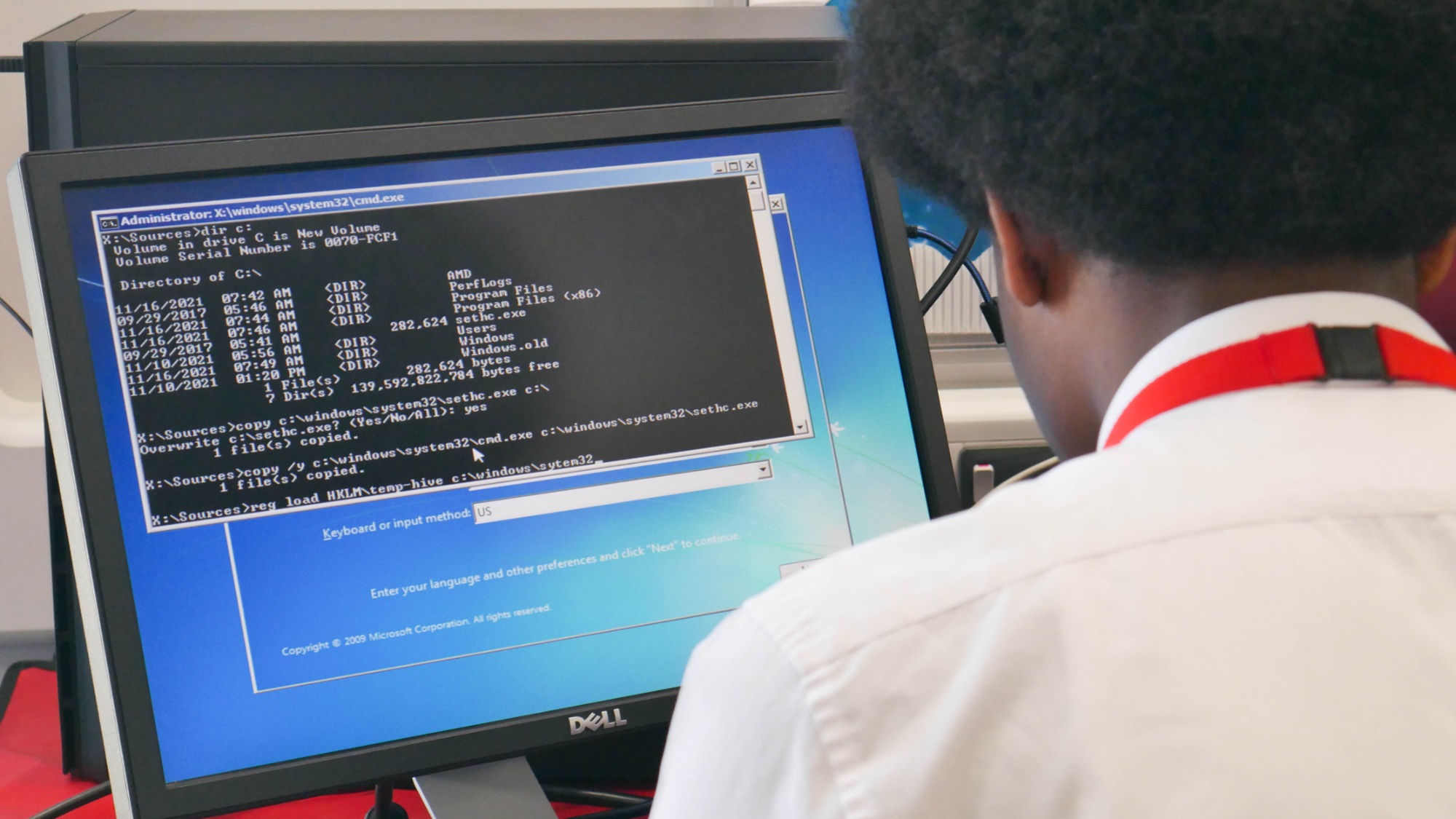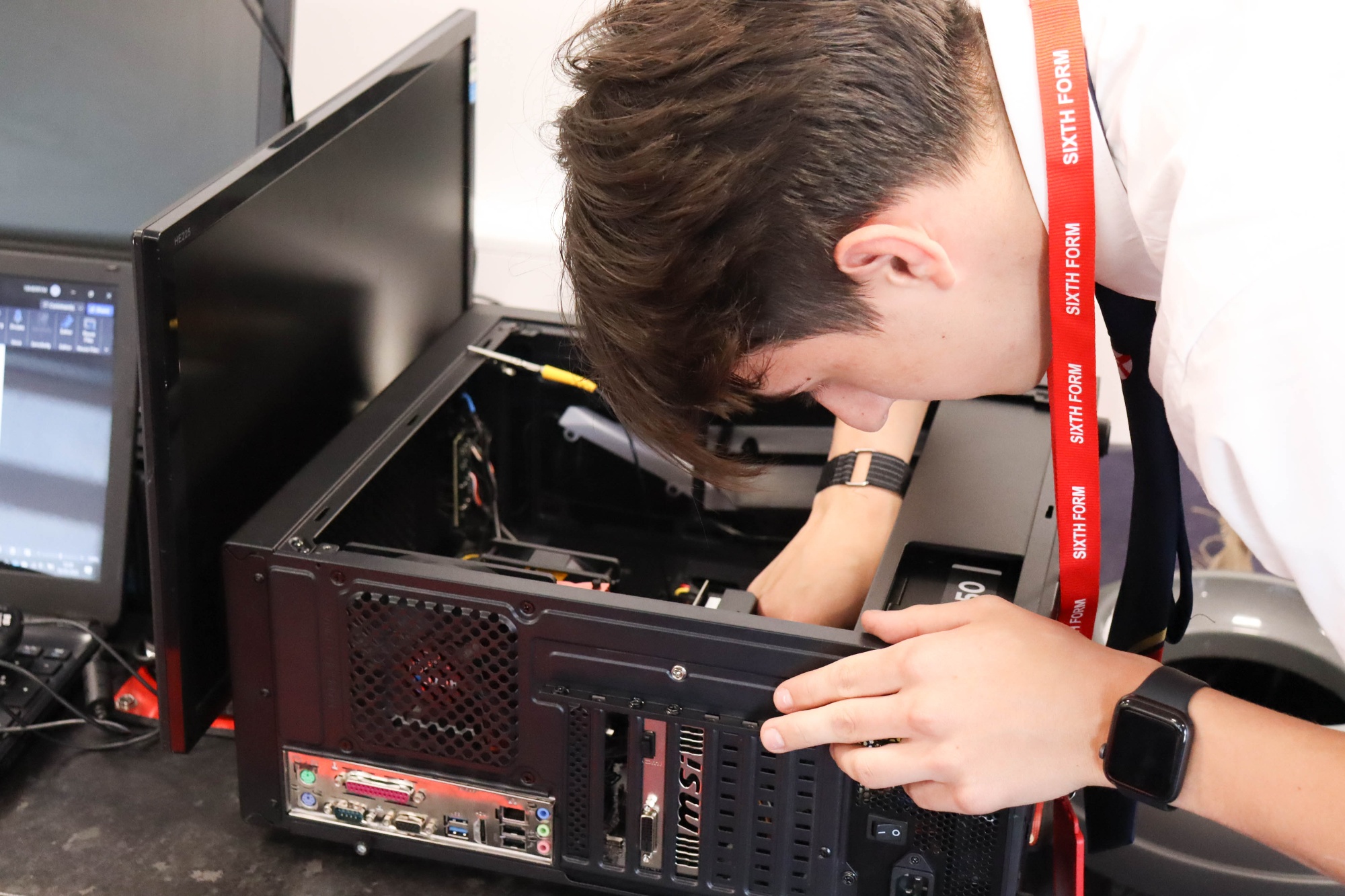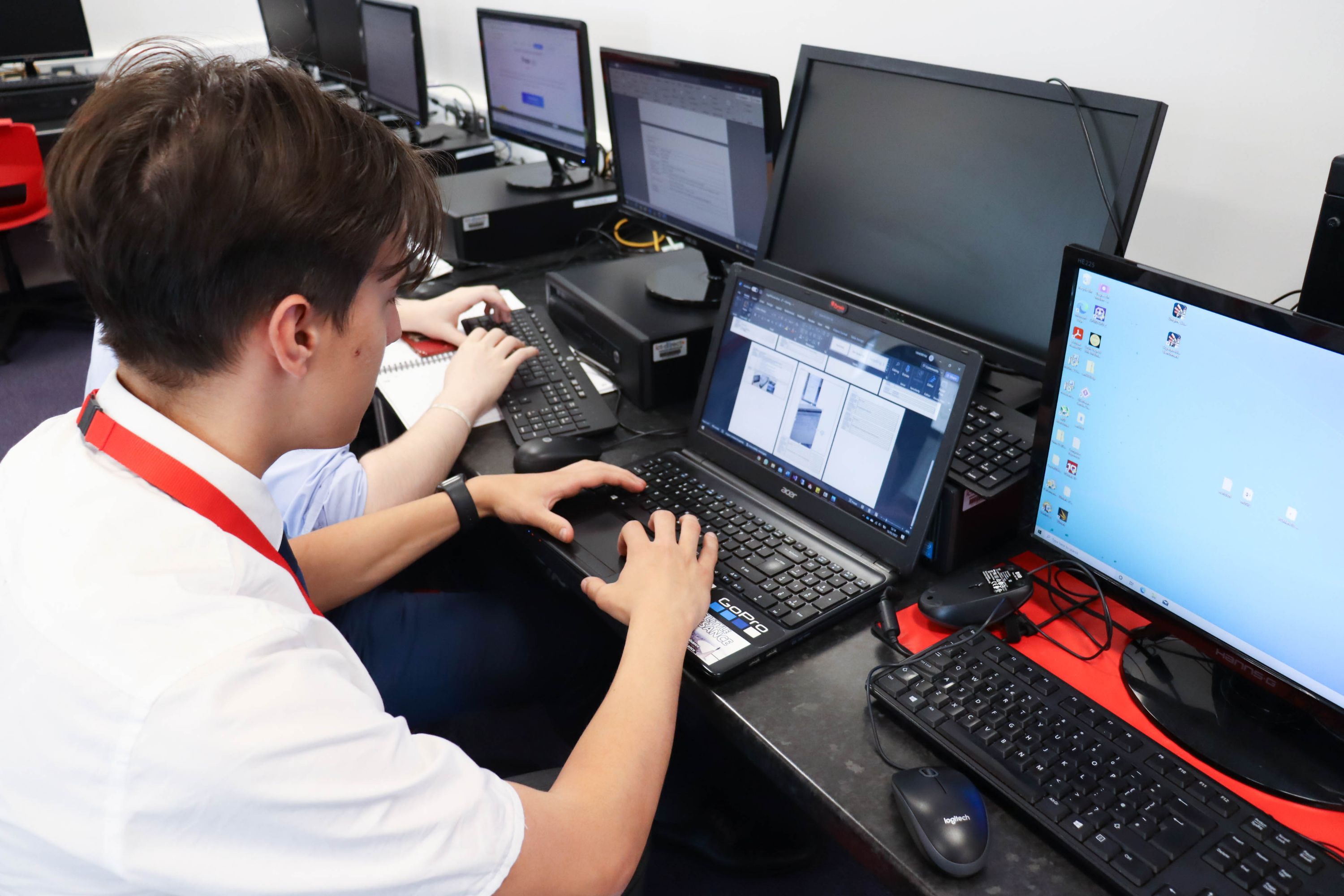Computer Science
Curriculum Leader: Mr C Leeke - leekec@saintgeorgescofe.kent.sch.uk
Advances in computing are developing at an amazing rate and transforming the way we both work and live our lives. Computer Science is very different from ICT, with a strong emphasis on computational thinking (which is a kind of reasoning used by humans and machines). The study of computation is about what can be computed (and how to do it) and what cannot currently be computed. It is not just about computers, with computation being an important life skill.
Subject Requirements
- GCSE Maths - Grade 5 or above
- GCSE Computer Science* - Grade 5 or above
- (*students who achieve Grade 7 or above in GCSE Maths will be accepted without GCSE Computer Science)
Intent
Our physical and digital resources continue to update as we try to keep up with an ever-evolving technological future. Our desire is to build soft skills, discernment, and resilience in our students. Our curriculum has been structured to allow students to explore a range of computational problems through the use of interactive resources. They will develop and thrive intellectually, socially, culturally, and spiritually in order to live life in all its fullness.

Implementation

Computer Science builds heavily on the programming skills/theory from GCSE and will learn many new programming principles and techniques for developing applications, with Microsoft Visual C# as the primary language.
We ensure that SEND and disadvantaged children are given the necessary support in class to fully access the Curriculum and that equal opportunities are given to all.
Impact
Students will develop their coding/programming, abstract thinking, general problem-solving, algorithmic, and mathematical reasoning skills; learning not only the required information and skills to complete the course but also to take forward in further education and careers related to, or in the industry of Computer Science.

Topics
| Topic | Topic Name |
|---|---|
| 10 | Fundamentals of Programming |
| 11 | Fundamentals of Data Structures |
| 12 | Fundamentals of Algorithms |
| 13 | Theory of Computation |
| 14 | Fundamentals of Data Representation |
| 15 | Fundamentals of Computer Systems |
| 16 | Fundamentals of Computer Organisation and Architecture |
| 17 | Consequences of uses of Computing |
| 18 | Consequences of Communication and Networking |
| 19 | Fundamentals of Databases |
| 20 | Big Data |
| 21 | Fundamentals of Functional Programming |
| 22 | Systematic Approach to Problem-Solving |
| 23 | Non-Exam Assessment: The Computing Practical Project |
Assessments
| Paper 1 | Paper 2 | Paper 3 |
|---|---|---|
|
• On-screen exam: 2 hours 30 minutes |
• Written exam: 2 hours 30 minutes |
|
|
This paper tests a student's ability to program, as well as their theoretical knowledge of computer science from subject content 10-13 above and the skills required from section 22 above. |
This paper tests a student's ability to answer questions from subject content 14-21 above.
|
The non-exam assessment assesses student's ability to use the knowledge and skills gained through the course to solve or investigate a practical problem. Students will be expected to follow a systematic approach to problem-solving, as shown in section 22 above. |
| Questions Students answer a series of short questions and write/ adapt/extend programs in an electronic answer document provided by us. We will issue preliminary material, a skeleton program (available in each of the programming languages) and, where appropriate, test data, for use in the exam. |
Questions Compulsory short-answer and extended-answer questions. |
Examining board link: AQA A Level Computer Science
Computer Science Future Paths
This course, with its emphasis on abstract thinking, general problem-solving, algorithmic and mathematical reasoning, and scientific and engineering-based thinking, is a solid foundation for further study and employment. Consider that increasingly there are very few jobs that do not involve the use of computers. Careers that have this qualification would be ideal for would-be roles such as Software Developer, Programmer, Engineer, and Cyber Security.
